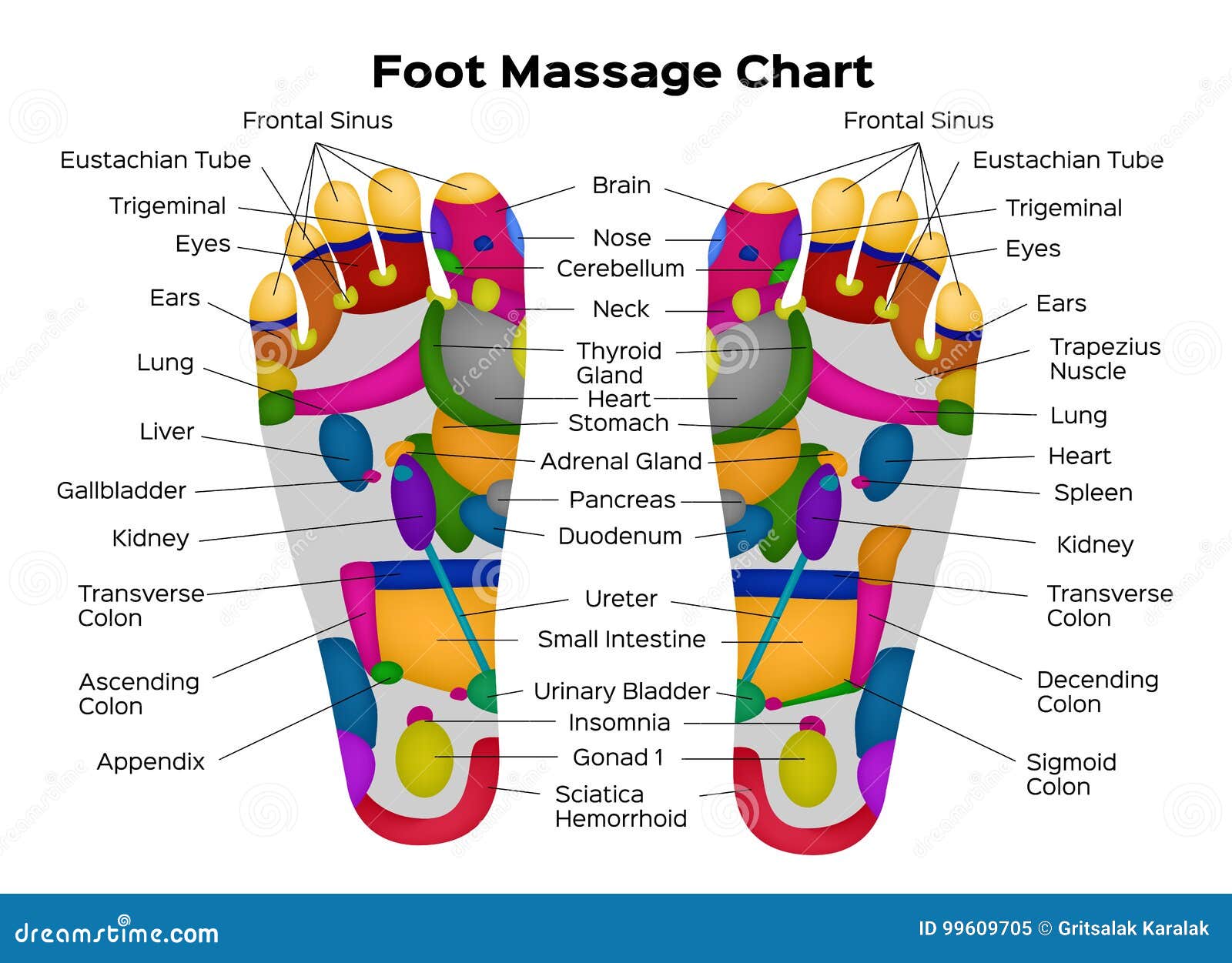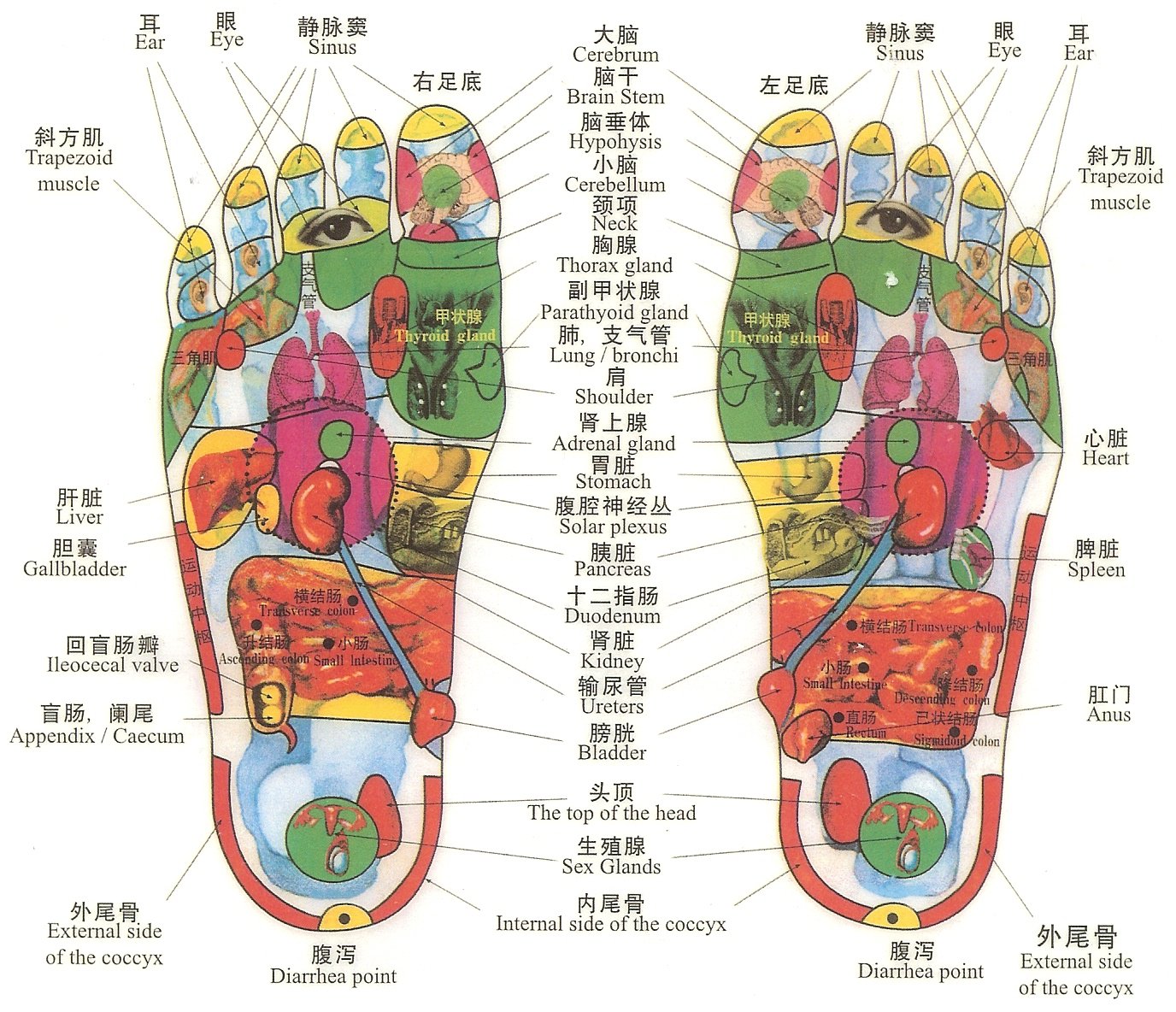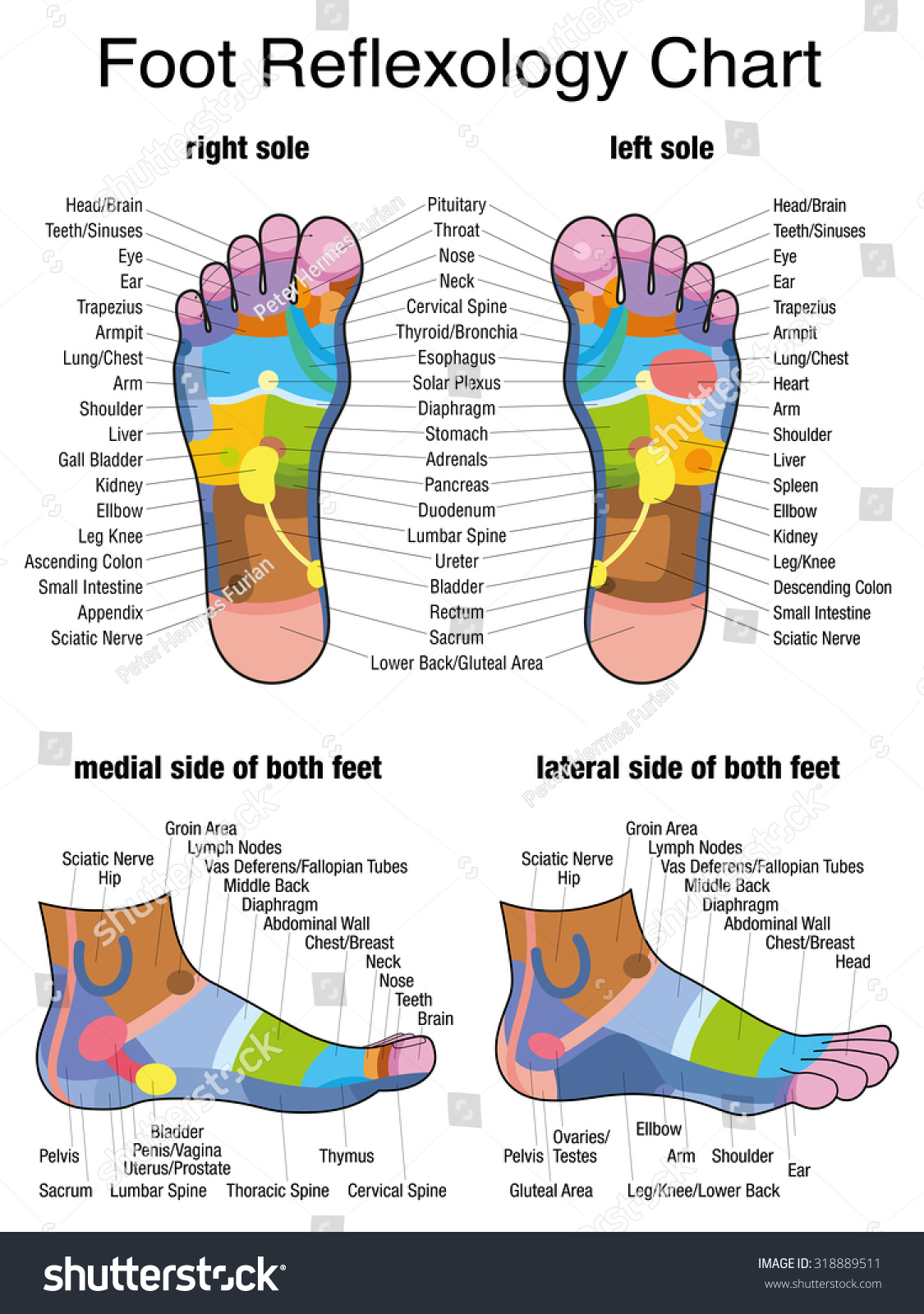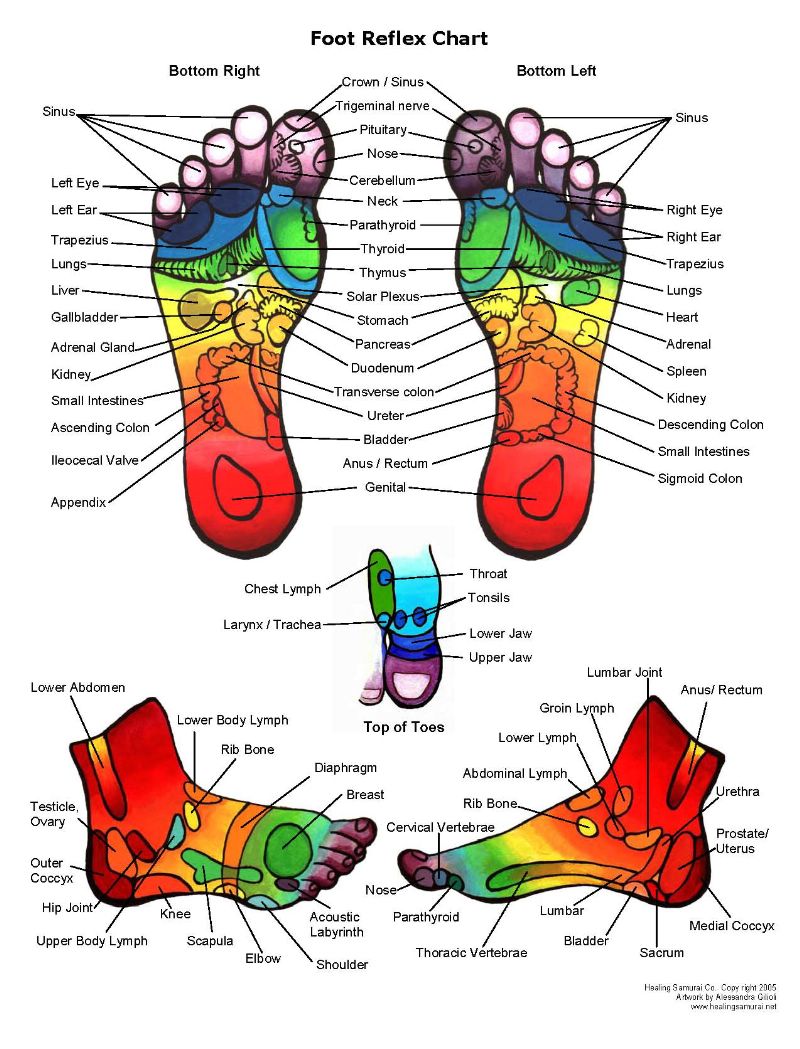
Foot reflexology chart and internal organs Reflexology, Reflexology
1 Familiarize yourself with the basic foot reflexology chart. Starting out, learn about the basic areas on a foot reflexology chart. This outlines the major organs locations on the foot. [1] The right foot is associated with the right part of the body and left foot is associated with the left side of the body.

Foot Reflexology Chart with Description of the Internal Organs and Body
Anatomy of the Lower Leg Muscles Bones There are 26 bones in the foot, and they can be categorized according to their location. Forefoot Bones The forefoot bones include long bones in the middle of the foot as well as smaller toe bones. Phalanges : These are the toes.

Reflexology » Balance Orlando 2023
Ligaments of the Foot and Ankle. Tell us where the pain is. Use our interactive tool. Use our Anatomy tools to learn about bones, joints, ligaments, and muscles of the foot and ankle. FootEducation is committed to helping educate patients about foot and ankle conditions by providing high quality, accurate, and easy to understand information.

17 Best images about Svæðanudd on Pinterest Detailed drawings, Foot
Phalanges Finally, there are the 14 phalanges, or the toe bones, of each foot. There are two in the big toe and three in each of the other toes. Joints of the foot Joints are moveable.

Foot organs map the body of the eye model human model anatomy
Okay everyone, you are going to get a real kick out of this video, because we're going to talk about the anatomy of the foot. The foot can be divided into two main parts - the sole or plantar region, which is the part of the foot contacting the ground, and the dorsum of the foot or the dorsal region, which is the part directed superiorly.

Pin by Raaya Pardes on התעמלות Foot reflexology, Plexus products
Bones of foot. The 26 bones of the foot consist of eight distinct types, including the tarsals, metatarsals, phalanges, cuneiforms, talus, navicular, and cuboid bones. The skeletal structure of.

TCM Diagnosis / Foot Reflexology, Dec 9th • Oriental Medical Care
January 6, 2021 193 Familiarize yourself with the basic foot reflexology chart. Starting out, learn about the basic areas on a foot reflexology chart. This outlines the major organs locations on the foot. The right foot is associated with the right part of the body and left foot is associated with the left side of the body.

reflexology feet chart Reflexology Foot Chart, Foot Massage
The foot (pl.: feet) is an anatomical structure found in many vertebrates.It is the terminal portion of a limb which bears weight and allows locomotion.In many animals with feet, the foot is a separate [clarification needed] organ at the terminal part of the leg made up of one or more segments or bones, generally including claws and/or nails.

This is What Happens When You Touch These Points On Your Feet
The location of the reflexes for every organ in the body can be seen on the reflexology foot map. Some reflexes, such as the heart on the left foot and the liver on the right, appear on only one foot. This is because there is only one of each organ and they lie on that side of the body. In many instances, there are matching points on both feet.

Pin on Reflexología
Human body Foot Foot The foot is the lowermost point of the human leg. The foot's shape, along with the body's natural balance-keeping systems, make humans capable of not only walking, but.

脚部的反射区鞋底和侧视图相应的内脏和身体部位的准确描述。 白色背景上的隔离矢量插图。 库存矢量图(免版税)318889511
What it is Foot reflexology chart Is it legit? Benefits How to use Professional services When to avoid Reflexology is a therapeutic practice that's been around for centuries. Foot.

The Organs of your body have their sensory touches at the bottom of
Foot reflexology chart A foot reflexology chart shows the acupressure points on the feet soles and their link to organs. . Foot reflexology chart in different styles, that illustrate the acupressure points /reflex zones on the feet soles and their link to organs.

Benefits of Reflexology EMB Reflexology Reflexology benefits
The anatomy of the foot The foot contains a lot of moving parts - 26 bones, 33 joints and over 100 ligaments. The foot is divided into three sections - the forefoot, the midfoot and the hindfoot. The forefoot This consists of five long bones (metatarsal bones) and five shorter bones that form the base of the toes (phalanges).

» Blog Archive » THE YIELDING SOLE
The foot is a part of vertebrate anatomy which serves the purpose of supporting the animal's weight and allowing for locomotion on land. In humans, the foot is one of the most complex structures in the body. It is made up of over 100 moving parts - bones, muscles, tendons, and ligaments designed to allow the foot to balance the body's.

Reflexology👣Areas On Your Feet That Practitioners Believe Correspond
31 Printable Foot Reflexology Charts & Maps There is no doubt that all of us get tired and exhausted after a long day at work. No matter what kind of job you do, you do get weary at the end of the day. How about getting a massage or a foot rub to help you relax? Sounds good, doesn't it?

Reflexology Foot Map Connecting Hypnotherapy...
The foot receives its nerve supply from the superficial peroneal (fibular) nerve, deep fibular nerve, tibial nerve (and its branches), sural nerve, and saphenous nerve. These nerves come from peripheral nerves that arise from the L4 to S3 nerve roots and contribute to the somatic motor function, general sensory information, and the cutaneous sensation of the foot.[1][2]